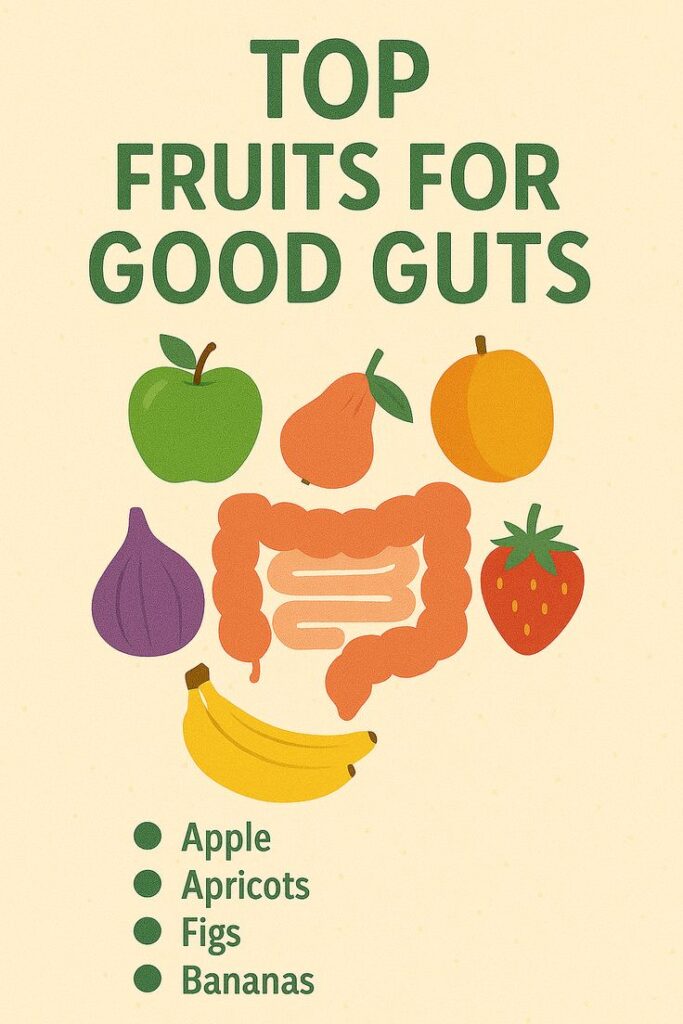
Gut health foods/Sbkinews.in
In an era of growing awareness about the profound connection between gut health and overall well-being, the quest for natural, food-based solutions to digestive issues has never been more urgent. With rising rates of irritable bowel syndrome (IBS), bloating, and inflammation—often exacerbated by processed diets—many are looking to nutritional science for answers. Emerging research continues to confirm what traditional cultures have long known: certain fermented and fiber-rich foods can serve as powerful allies in maintaining and restoring gut balance.
For good reason, the gut is frequently referred to as the “second brain,” says Dr.Anjali Mehta, a gastroenterologist and author of The Microbiome Reset. “Its health doesn’t just affect digestion. An imbalanced gut can influence everything from immunity and skin conditions to mental health and chronic disease risk.”
For those seeking to reboot their digestive system without relying solely on supplements or medications, incorporating these six scientifically supported fruits and vegetables can make a transformative difference.
1. Kimchi: The Fermented Firepower of Korea
A staple in Korean cuisine, kimchi is a spicy, fermented cabbage dish teeming with lactic acid bacteria, including Lactobacillus kimchii. This live bacteria functions as a natural probiotic, helping to populate the gut with beneficial microbes.
A 2021 study published in the Journal of Medicinal Food found that regular kimchi consumption increased microbial diversity in the gut—a key marker of digestive health—and reduced markers of inflammation. Its high fiber content from napa cabbage and radishes also promotes regular bowel movements.
“The fermentation process not only preserves the vegetables but also enhances their nutritional profile, creating bioactive compounds that have anti-obesity and anti-inflammatory effects,” the study noted.
Gut health foods/Sbkinews.in
2. Artichokes: The Prebiotic Powerhouse
One of the best natural sources of inulin, a form of prebiotic fiber, is Jerusalem artichokes. Prebiotics are non-digestible fibers that act as food for the beneficial bacteria that are already present in your gut, as opposed to probiotics, which are living bacteria.
“Think of prebiotics as fertilizer for your microbiome,” says nutritionist Rohini Patil.“They promote the growth of beneficial bacteria and drive out harmful pathogens.”
Research in the British Journal of Nutrition has shown that inulin from artichokes can significantly increase bifidobacteria, which aid in digestion, enhance nutrient absorption, and even support the immune system.
Gut health foods/Sbkinews.in
3. Kefir: The Probiotic Dairy (or Non-Dairy) Marvel
Though often made from dairy, water kefir and coconut kefir offer powerful probiotic benefits for those who are lactose intolerant. This fermented beverage contains up to 30 different strains of bacteria and yeast, making it one of the most potent probiotic foods available.
A comprehensive review in Frontiers in Microbiology highlighted kefir’s ability to improve lactose digestion, reduce inflammation, and even exhibit antimicrobial properties against pathogens like E. coli and Salmonella.It is also a versatile basis for salad dressings and smoothies due to its effervescent, acidic flavor.
Gut health foods/Sbkinews.in
4. Garlic: The Flavorful Prebiotic
Beyond its renowned immune-boosting properties, garlic is an excellent prebiotic thanks to its high content of fructooligosaccharides (FOS). These substances make it through the upper gastrointestinal tract undigested and into the colon, where they specifically promote the growth of beneficial bifidobacteria.
A study in Food Science and Human Wellness demonstrated that garlic’s prebiotic properties not only support gut microbiota but also enhance the bioavailability of its own active compounds, such as allicin, creating a synergistic health effect.
Gut health foods/Sbkinews.in
5. Asparagus: The Spring Vegetable with Year-Round Benefits
Another excellent source of inulin, asparagus helps promote the growth of friendly gut bacteria. Additionally, it has a lot of soluble and insoluble fiber, which helps maintain regularity and gives feces more volume.
“Asparagus contains antioxidants and is a natural diuretic, which can help reduce bloating and water retention,” Patil adds. “It’s a multi-functional food for digestive comfort.”
Gut health foods/Sbkinews.in
6. Bananas: The Accessible Gut Regulator
Slightly underripe bananas are particularly high in resistant starch, which functions similarly to soluble fiber and has strong prebiotic effects. This starch travels to the large intestine, where it is fermented by gut bacteria to produce short-chain fatty acids like butyrate—a primary energy source for colon cells linked to reduced inflammation and lower colon cancer risk.
A trial published in Gut found that participants who consumed resistant starch experienced positive shifts in their microbiome composition, including increased production of beneficial metabolites.
Gut health foods/Sbkinews.in
The Gut-Brain Connection: More Than Just Digestion
The implications of gut health extend far beyond the digestive tract. Unbalanced stomach can lead to anxiety, depression, and brain fog because of the gut-brain axis, a bidirectional communication network between the enteric nervous system and the central nervous system.
“When you nourish your gut, you’re also nourishing your mind,” emphasizes Dr. Mehta. “Many patients report improved mood and mental clarity after making targeted dietary changes to support their microbiome.”
A Word of Caution: Introduce Changes Gradually
While these foods offer significant benefits, experts caution against overconsumption too quickly. Introducing high-fiber or fermented foods abruptly can sometimes cause gas, bloating, or discomfort.
“As your system adjusts, start with small portions—a tablespoon of kimchi, a few spears of asparagus—and gradually increase,” Patil suggests. Pay attention to your body. Healing your gut, not overburdening it, is the aim.
For those with specific conditions like Small Intestinal Bacterial Overgrowth (SIBO) or histamine intolerance, some fermented foods may initially exacerbate symptoms. Consulting a healthcare provider or registered dietitian can help tailor a gut-friendly diet to individual needs.
In the journey toward optimal health, sometimes the most powerful prescriptions aren’t found in a pill bottle, but in the produce aisle. By making these six foods a regular part of a balanced diet, anyone can take proactive, natural steps toward lasting digestive wellness.


